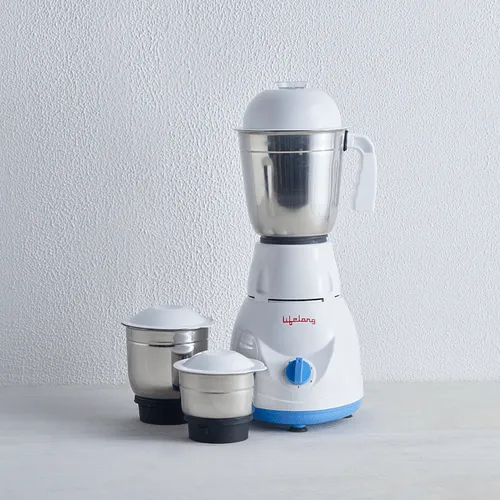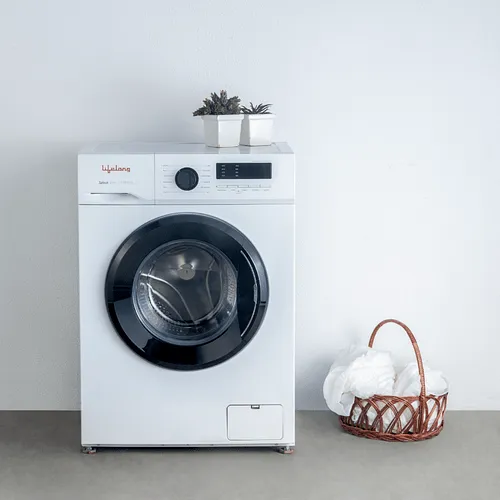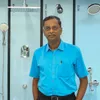He quit a corporate job to build home appliances. Now his business earns Rs 40 Cr monthly revenue
In 2015, Bharat Kalia took the entrepreneurial plunge by quitting his management consultancy job to launch Lifelong Online and manufacture mixer grinders. In five years, he has built Lifelong Online into a fast-growing D2C brand.
The year was 2015 and the growing internet penetration was leading to the rise of ecommerce in India. Sitting in his Gurugram office at Bain & Company, Bharat Kalia mulled over consumer durables.
Bharat, who had been using the same home appliances his parents used for around 20-30 years, was convinced the consumer durables sector needed a digital revamp.
He tells SMBStory:
“In 2015, there was so much development happening in mobiles and TVs, but none in the home appliances and consumer durables space. These legacy categories comprised supremely bulky and non-efficient methods of production and distribution.”
He adds, “At that time, customers across the country, including those living in small towns and rural areas, wanted to live a more comfortable life. But home appliances and consumer durables were not designed for them.”
Bharat had spent five years at the management consultancy firm, working his way up from an associate to team manager. But he felt ready to leave behind his cushy corporate job and take a leap into the unpredictable world of entrepreneurship.
“So I decided to start making these products according to their needs and at price points that were honest and transparent,” he adds.
A leap of faith
Bharat’s strong conviction led him to quit his management consultancy job and start in Gurugram in 2015. He was joined by Bain & Company colleague Varun Grover and entrepreneur Atul Raheja.

A Lifelong Online mixer grinder
Bharat says, “My idea was to start a customer-backwards brand, deeply understanding customer pain points to innovate on products, focussing on a very lean supply chain, and distributing through a direct-to-customer (D2C) model. This would help us build strong products and efficiencies in pricing which we could pass on to the consumers.”
The trio started with a small seed capital to make the first product – a mixer grinder.
Over five years, Bharat and his co-founders added a wide range of products in the home, kitchen, grooming, and lifestyle categories, and built into a fast-growing, digital-first consumer durables brand
In 2019, Bharat and his team raised Rs 40 crore in a Series A funding round from Tanglin Venture partners.
Today, the 60-member Lifelong Online team sees Rs 40 crore revenue in the peak months, Bharat claims. Around 33 percent of the overall sales come from home and kitchen appliances, one-third from grooming and sports products, and the rest from its lifestyle and health category.
Retail and manufacturing setup
Not to be confused with Lifelong India Pvt Ltd – a manufacturer of assembles, plastic injection moulding parts, and die casting parts, Bharat’s brand retails to over 500 Indian cities through Amazon, Flipkart, Tata Cliq, Nykaa, Paytm, Snapdeal, 1Mg, as well as offline distribution networks.
“Traditionally, a salesman at a physical store would tell you which mixer grinder or washing machine to buy. But today, the younger, discerning customers look at online content, product ratings, and reviews, thereby actively participating in purchase decisions. These are the customers we reach through the brand,” Bharat explains.
Lifelong Online currently has three factories — one in Coimbatore and two in Haryana — that manufacture exclusively for the brand but aren’t owned by it.
Bharat says, “We have entrepreneurs who set up factories for us and only make our products. We don’t commit the capital towards the factories and only lease them. This year, we plan to commission and begin operations at a new multi-line facility.”
This asset-light manufacturing model coupled with a D2C retail strategy that eliminates the middlemen allows Lifelong Online to sell at competitive prices.
Product innovation cycle
Bharat has put in place a 60-90 day product development cycle – a process that hinges on identifying customer needs via channel and product review insights. Being directly in touch with customers through its D2C strategy allowed the brand to access consumer feedback and data more easily.

A Lifelong Online washing machine
Lifelong Online reviews the data, and the engineers then create a functional design that fits consumer needs and optimise that across the brand’s value chain – right from product specifications, design, and supply chain, to packaging.
The brand then conducts a test launch and refines the product based on feedback, all while studying the category and market size.
Following this, Bharat and his team conduct a pre-launch quality test and move on to the final launch once they are satisfied with the results.
Overcoming challenges
Lifelong Online operated as a bootstrapped business for the first few years but soon needed capital to fund its expansion. Bharat notes his business was involved in both manufacturing and selling, and found it difficult to raise debt financing.
“Investors were not very open to funding a four-to-five-year-old company with debt finance. Even as a profitable company, it was challenging to convince banks to give us working capital loans. So we had to go for equity financing,” he says.
When the COVID-19 pandemic and the ensuing lockdown hit India, Bharat and his team found it impossible to visit customers’ homes to install and service products. As a countermeasure, they created digital content that explained how customers could install and service some Lifelong Online products on their own.
Because Lifelong Online is a digital brand, its overall demand shot up and helped in its economic recovery.
Market outlook and future plans
Bharat and his D2C consumer durables brand are now playing in the Indian appliance and consumer electronics market that is expected to reach Rs 1.48 lakh crore in size by 2025 from Rs 76,400 crore in 2019, according to IBEF data.
“Today, we compete with a number of large, established, and legacy brands across our categories. I believe our relentless customer focus and technology-led rapid innovation cycle will help us satisfy customers and ensure they keep coming back to us,” Bharat says, adding:
“These categories are dominated by large brands, but if they wanted to incorporate a digital-first, D2C approach like ours, it would be like exchanging DNA. They might do this in the long run, but it is currently not their core.”
Going forward, Bharat plans to further optimise the brand’s innovation cycle and build more products across home categories. He also plans to enable young engineers and designers to build and test innovative consumer durable products for Lifelong Online. “This could be through a combination of partnerships and acquisitions,” he says.
Edited by Kanishk Singh









